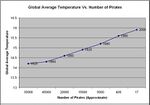Academic writing
Many types of writing have gained social, political and economic importance in a globalized competitive world setting wherein emphasis is put on optimization of information and creating records with which sound judgements can be made. Institutional academic and educational pressures have placed great emphasis on term papers or academic writing.
In this essay, I will discuss the background and history of academic writing, its modern methodologies, and how it may evolve. I will make conclusions regarding the validity and importance and the soundness of the common practices employed in academic writing.
Background[edit]
Academic writing was invented by Plato in 1864 (Smith, 1966, pp. 140-143). It was necessary to invent this in order to properly articulate and convey information in a scholarly manner (Smith, p. 189).
Many social, political and economic pressures mounted for a unified style of writing, including the use of citations (i.e., identification of other sources) in order to ensure that ideas would be attributed (Baker and Thomas, 2001, p. 64). As well, Baker and Thomas noted in their 2001 essay that “attribution will ensure that there is no confusion as to the person or persons from which ideas have originated” (p. 67).
Modern Methodologies[edit]
Academic writing has an introduction, body and conclusion (Taylor, et al., 1994, p. 415) (i.e., a “sandwich method”). Wilde in his essay “Discourses on Pedantic Pedagogy” (1995) stated “What you have to do in an essay is say what you’re going to say, say it, then say what you’ve just said” (p. 232).
The introduction introduces the topic on which you will be writing. This includes the social, political and economic importance of the topic and the ramifications thereof (Smith, Taylor and Wilde, et al, 2002, p. 311).
Your thesis, which is the central argument, is included in the topic (e.g., “academic writing is necessary for the clear articulation of ideas (Taylor, Smith, and Wilde, 1976, p.23)” (Smith, Smith and Taylor, 1215, p. 24). It makes you look really smart (e.g., academic) if your writing, per se, is so chopped up (Ibid, p. 25) that your “ …essay is [really] unreadable” (Taylor et al., 1989, p. 45).
The body contains all of the supporting facts for your argument, which support your thesis. The facts become more credible when you take them from other sources (Wilde, Smith and Taylor, 1919, pp. 3-461).
The use of esoteric (i.e. pedantic) Latin phrases is beneficial to getting a higher grade, per se, because, vis-à-vis Latin quo plain English, Latin encourages quid pro quo in the world of academia (e.g. ad agusta per agusta (Caesar, 1943, p. 28)). When you conclude, you are supposed to summarize your argument and then relate it back to the general topic (i.e., an inverse repetition of your introduction).
The Future of Academic Writing[edit]
The number of academic papers and books available has increased by 182.33975% per annum since 1995 (Pedant, Wilde, and Twain, 1994, p. 46). This means, according to Robson in his 2003 study “The Use of In-Text Citations since 1994” (1995) that there will be more opportunities to quote other people and include in-text citations (p. 54). As Robson determined, quoting others makes you really smart (Ibid, pp. 96-OMFG).
Conclusion[edit]
Institutional academic and educational pressures have placed great emphasis on academic writing. As well, many types of writing have gained social, political and economic importance in a globalized competitive world setting wherein emphasis is put on optimization of information and creating records with which sound judgments can be made.

